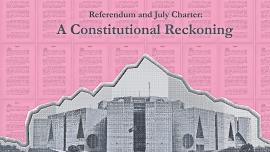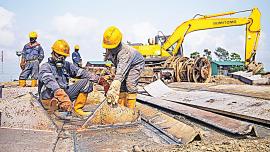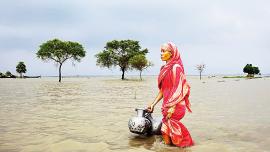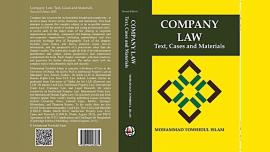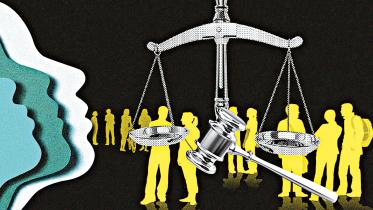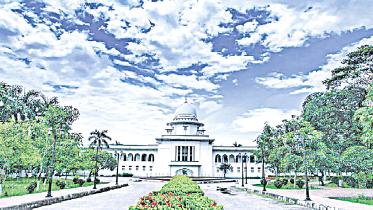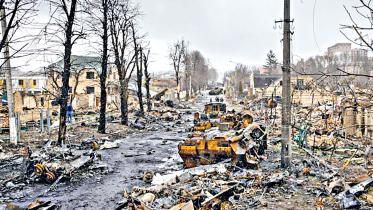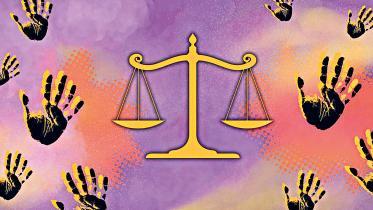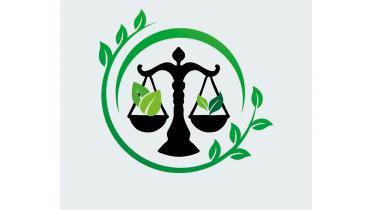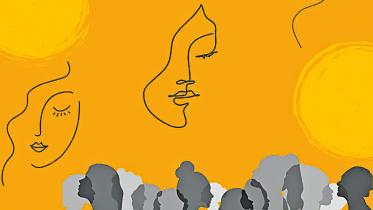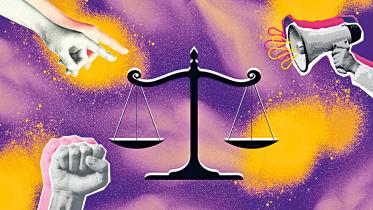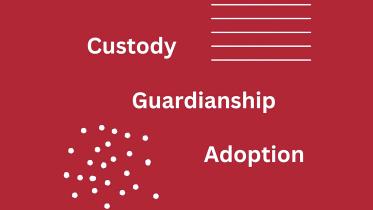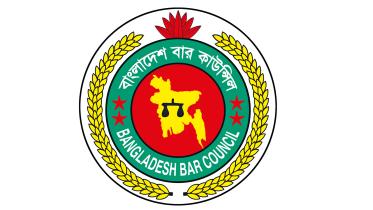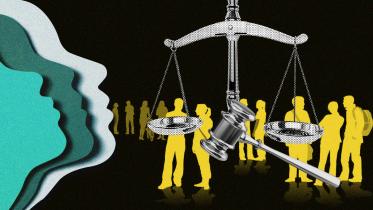Law Vision / Artificial Intelligence and the court
21 October 2025, 18:00 PM
Environmental Law / Protecting our climate-induced displaced population
21 October 2025, 18:00 PM
Law Opinion / Referendum and July Charter: A constitutional reckoning for Bangladesh
21 October 2025, 18:00 PM
Rights Watch / The costs of Bangladesh’s shipbreaking industry
14 October 2025, 18:00 PM
Law Vision / Addressing climate-induced displacement in Bangladesh
14 October 2025, 18:00 PM
Court Corridor / The enduring crisis of administrative corruption
7 October 2025, 18:00 PM
Law Review / Significance of reforms around arrest processes
7 October 2025, 18:00 PM
Intellectual Property Law / Trademark law and the curious case of Sattar Buksh
7 October 2025, 18:00 PM
Law vision / Regulating battery-run rickshaws
4 October 2025, 18:00 PM
Book Review / Reflections on ‘Company Law: Text, Cases and Materials’
4 October 2025, 18:00 PM
Reviewing the laws enacted in 2024
The year 2024 presented new hopes for Bangladesh. New laws and ordinances were enacted, some old laws were revised as the spirit of reforming the state touched the legal landscape.
9 January 2025, 18:00 PM
Ensuring fair trials in Bangladesh
Any justice system must have fair trials as a cornerstone, ensuring that each individual receives the same impartial treatment while in conflict with the law. Articles 27 and 31 of the Constitution of Bangladesh upholds the concept of fair trial. Nevertheless, there are several obstacles that hamper the execution of justice when these concepts are put into practice.
9 January 2025, 18:00 PM
Notable decisions of the Supreme Court of Bangladesh
Last year witnessed an array of major judicial decisions shaping the jurisprudence and legal discourse in Bangladesh. Indeed, throughout the year, the High Court Division (HCD) and the Appellate Division (AD) of the Supreme Court of Bangladesh (SCB) handed down several significant judgments, of immense constitutional importance, among others.
9 January 2025, 18:00 PM
Should Bangladesh go for “Green tribunals”?
Bangladesh has long been prone to the adverse impacts of climate change coupled with environmental degradation and pollution due to the ineffectiveness of the enforcement mechanisms available for environment conservation.
26 December 2024, 18:00 PM
The neglected environmental aspect of armed conflicts
It is important to recognise the hidden costs that armed conflicts inflict upon the environment and the communities living in the affected areas.
26 December 2024, 18:00 PM
Addressing the root causes of violence against women
The Constitution of the People’s Republic of Bangladesh enshrines the principles of freedom, justice, and equality, affirming that all individuals are equal before the law and entitled to equal protection under it.
26 December 2024, 18:00 PM
Understanding the Syrian Armed Conflict
Rebel forces, particularly Hayat Tahrir al-Sham (HTS) and the Syrian National Army (SNA), carried out an offensive that ended the 50 years of the Assad family’s authoritarian rule in Syria. An armed coalition, supported by both state and non-state actors, was involved in this offensive.
19 December 2024, 18:00 PM
Revisiting the Draft Personal Data Protection Act 2023
In digital age, personal data fuels the online ecosystem while also raising privacy concerns. To address this issue, Bangladesh aims to strengthen its data privacy framework by adopting the draft Personal Data Protection Act, 2023 (PDPA).
19 December 2024, 18:00 PM
Gender bias entrenched in our legislation
From family structures to politico-legal frameworks, deeply rooted patriarchal views have historically influenced every aspect of life.
12 December 2024, 18:00 PM
Constitutional right to a healthy environment
The notion that a safe and healthy environment can be a right may still sound new to us.
12 December 2024, 18:00 PM
Rights of the Bangladeshi healthcare workers in the UK
There are many critical human rights issues of Bangladeshi healthcare workers who went to the United Kingdom (UK) under the Health and Care (HC) worker visa scheme.
12 December 2024, 18:00 PM
16 days of Activism: Readers' Queries
As part of the 16 days of activism against gender-based violence, we collected queries from our readers over the past one month.
7 December 2024, 18:00 PM
A multidimensional analysis of rape
Rape and other sexual crimes are largely misunderstood because people refuse to understand or fail to understand why they are crimes in the first place.
5 December 2024, 18:00 PM
Legal steps for a rape victim
A very brief discussion of the possible legal steps to be taken by a rape victim are discussed in this piece.
5 December 2024, 18:00 PM
Custody, Guardianship, and Adoption: Comparing Bangladesh and Malaysia
The book named Impact of Gender on Custody, Guardianship, and Adoption authored by Professor Dr. Taslima Monsoor and Dr. Sridevi Thambapillay is an important cross-country study. In this book, the authors undertake a careful comparative study on how gender influences the practice of family law within Bangladesh and Malaysia, under Islamic law, in particular.
5 December 2024, 18:00 PM
Bangladesh Bar Council: A call for urgent reform
Reform is no longer optional but a crucial necessity for institutions, and the Bangladesh Bar Council is no exception.
29 November 2024, 18:00 PM
Rethinking violence against women
When it comes to violence against women, we make a conscious choice and turn all our focus on sexual violence.
29 November 2024, 18:00 PM
Amended ICT law to allow trial of security personnel
The newly amended International Crimes (Tribunals) Act will allow for the prosecution of members of the army, navy, air force, police, Rapid Action Battalion, Border Guard Bangladesh and all intelligence agencies.
24 November 2024, 19:55 PM
Five reform proposals to ensure a more democratic constitution
During the 2024 anti-discrimination movement, the people of Bangladesh shed their blood on the streets to achieve a fair and just society.
21 November 2024, 18:00 PM
Food adulteration and its deadly consequences
Food adulteration slowly damages people’s health in ways that are not immediately visible, but have serious long-term effects.
21 November 2024, 18:00 PM





